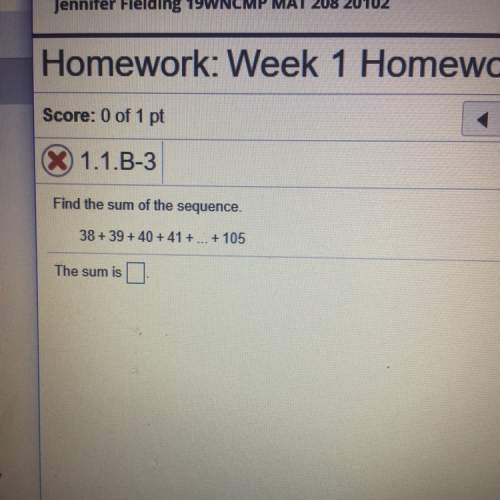Question 3 of 10
You roll two number cubes.
Let event A = You roll an even number on the firs...

Mathematics, 23.03.2021 19:20, mandyt6058
Question 3 of 10
You roll two number cubes.
Let event A = You roll an even number on the first cube.
Let event B = You roll a 4 on the second cube.
Are the events independent or dependent? Why?
A. Independent, because the outcome of the first roll doesn't affect
the outcome of the second roll.
B. Independent, because they have no outcomes in common.
C. Dependent, because both cubes have six sides.
D. Dependent, because 4 is an even number.

Answers: 1
Other questions on the subject: Mathematics

Mathematics, 21.06.2019 15:20, aliceotter2007
Asmall (but heavy) particle placed in a glass of water will follow a zigzag motion because the particle will bounce off of the water molecules it meets. this is called brownian motion. a physicist simulates this on a computer, by varying the distance a particle can travel (called the mean free length), on average, before it collides with a water molecule and assigning the change in motion to be one of 8 directions, each with a similar probability. by running the simulated particle (with the same mean free length) many times she determines that it should take 15 seconds, on average, for the particle to fall to the bottom, with a standard deviation of 1.5 seconds. next she lets a real particle fall through a glass of water and finds that it took 18 seconds. what does she conclude, and why?
Answers: 1

Mathematics, 21.06.2019 19:00, miguelc2145
Give me the equations of two lines that have the same slope but are not parallel.
Answers: 3

Do you know the correct answer?
Questions in other subjects:



Mathematics, 17.05.2020 02:57



Biology, 17.05.2020 02:57

Mathematics, 17.05.2020 02:57










